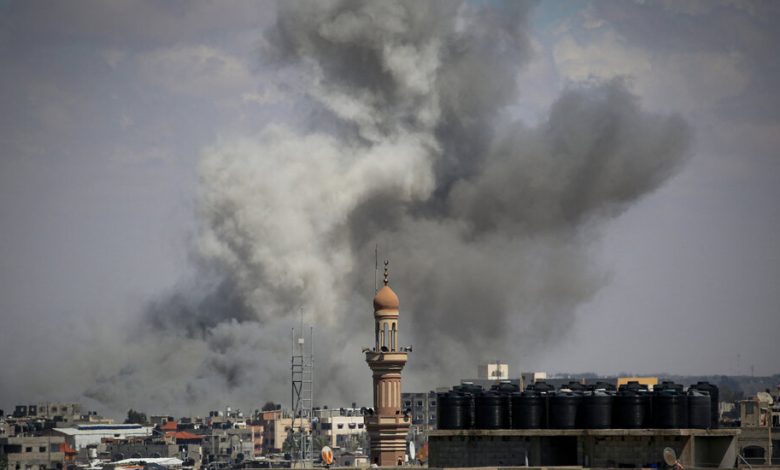Inside the White House Scramble to Broker a Deal in Gaza

Over the course of a few hours, the news from the Middle East came into the White House Situation Room fast and furious.
Israel orders 100,000 civilians out of Rafah in prelude to invasion.
Hamas “accepts” cease-fire deal, potentially precluding invasion.
Israel conducts strikes against Rafah, possibly opening invasion.
The war-is-on-off-on-again developments on Monday left White House officials scrambling to track what was happening and what it all meant. At the end of the day, they came to believe, each of the moves signaled less than originally met the eye, but reflected efforts to gain leverage at the negotiating table with a clear resolution not yet in sight.
In fact, Hamas did not “accept” a cease-fire deal so much as make a counteroffer to the proposal on the table previously blessed by the United States and Israel — a counteroffer that was not itself deemed acceptable but a sign of progress. At the same time, Israel’s strikes in Rafah evidently were not the start of the long-threatened major operation but targeted retaliation for Hamas rocket attacks that killed four Israeli soldiers over the weekend — and along with the warning to civilians, a way to increase pressure on Hamas negotiators.
The flurry of actions underscored how fluid the situation in the region is as President Biden and his team try to broker a deal that they hope will ultimately end the war that has devastated Gaza, killed tens of thousands of combatants and civilians, inflamed the region and provoked unrest on American college campuses. Over the last few days, the talks went from high hopes that a deal was close, to a fresh impasse that seemed to leave them on the verge of collapse, to a renewed initiative by Hamas to get them back on track.
“Biden is continuing all efforts to thread multiple needles at once,” said Mara Rudman, a former deputy Middle East special envoy under President Barack Obama who is now at the University of Virginia’s Miller Center. The president is still warning Prime Minister Benjamin Netanyahu of Israel that a “Rafah ground invasion is a terrible idea,” she said, while also “pressuring Hamas in every way possible to get hostages out and more humanitarian aid in.”
